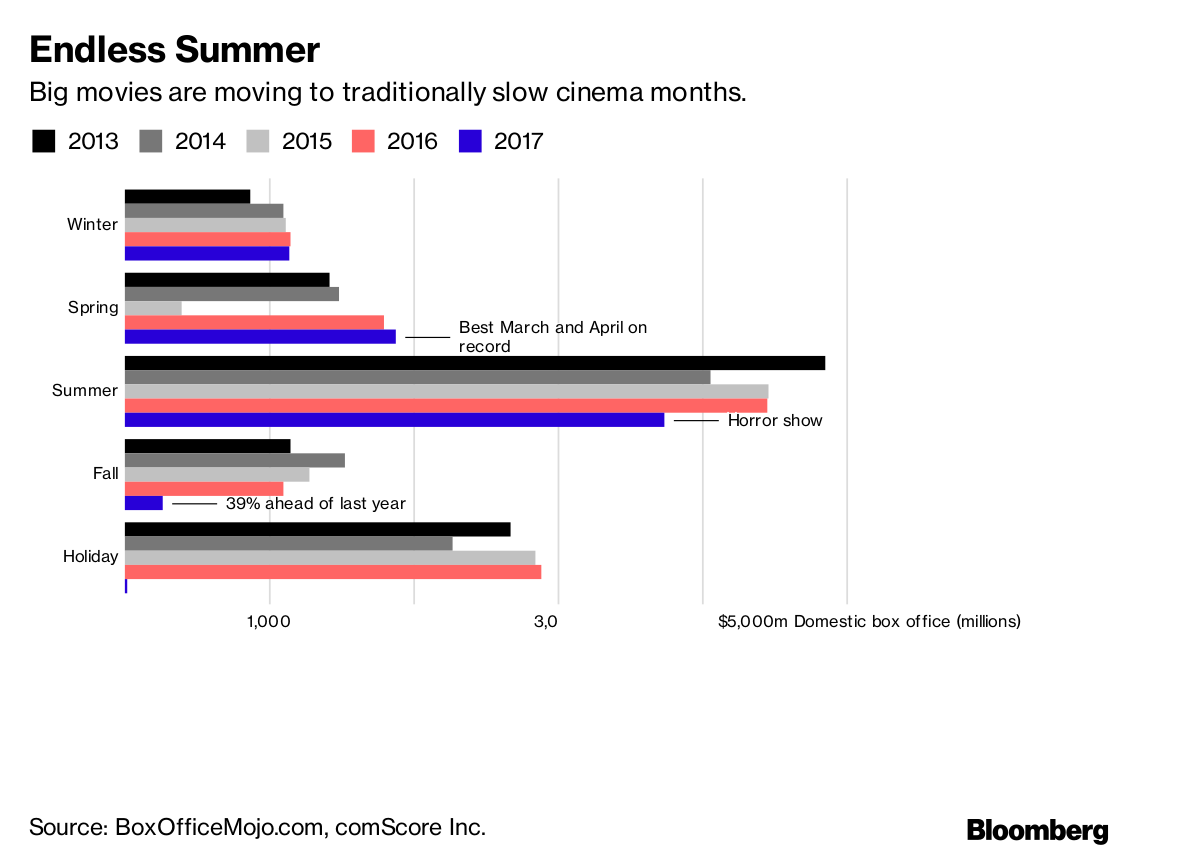If the movie business were an actual movie—say, a cliche action film—August would’ve been that point 90 minutes in when the hero gets kicked in the teeth, the bad guy takes the girl hostage, and all seems lost.
As far as ticket sales are concerned, this summer really bombed—especially last month. But it wasn’t a total surprise: Hollywood held back some of its biggest bets and didn’t even bother rolling out a major film on Labor Day weekend, cementing its worst summer in a decade (or two decades, if you account for inflation).
Life, however, is about to imitate art. Like our hero’s eventual recovery, the year’s saviors have arrived—led by a homicidal clown and Luke Skywalker. The fall movie season has barely begun, and the industry is already rebounding thanks to a record audience for the horror film It and a calendar full of highly anticipated releases. A happy ending may indeed be coming—just in time for Christmas.
“The movie business isn’t quite dead yet,” Lions Gate Entertainment Corp. Vice Chairman Michael Burns said at a Goldman Sachs conference last week.
For the full year through Sunday, North American theaters garnered $7.9 billion in ticket sales, down 4.9 percent from the same period last year, according to ComScore. Returns for the fall starting Labor Day, however, are running a tremendous 39 percent ahead of the year-earlier period, thanks largely to Warner Bros. Pictures’ It, which has raked in a record $219.7 million in domestic theaters.

As shabby as the movie business has looked since May, it’s worth noting that some of that was by design. This year, domestic theaters recorded their best March and April periods in history, thanks to Walt Disney Co.’s Beauty and the Beast and Universal Pictures’ eighth installment in the Fast & Furious franchise. A decade ago, both of those films would have been parked in July or August, according to Shawn Robbins, chief analyst at BoxOffice.com.
“This year represents something that the industry has been building toward: an increased focus on the year-round calendar,” Robbins said.
Lions Gate is a good example. Its big hit of the summer was The Big Sick, the type of romantic comedy that’s typically slotted in slower movie months like February and September. Meanwhile, it saved its action offering, American Assassin, for a debut this past weekend, where it earned a better-than-expected $14.8 million in domestic theaters.
“We’re a little bit of a contrarian there,” said Burns at Lions Gate. “We’re sort of the mentality ‘Hit them where they ain’t.’”
Soon enough, film studio programmers started placing bigger bets at the other end of the calendar, too. Universal’s Fifty Shades of Grey smashed the record for a February release in 2015, only to have it handily wrested away a year later by Deadpool.








